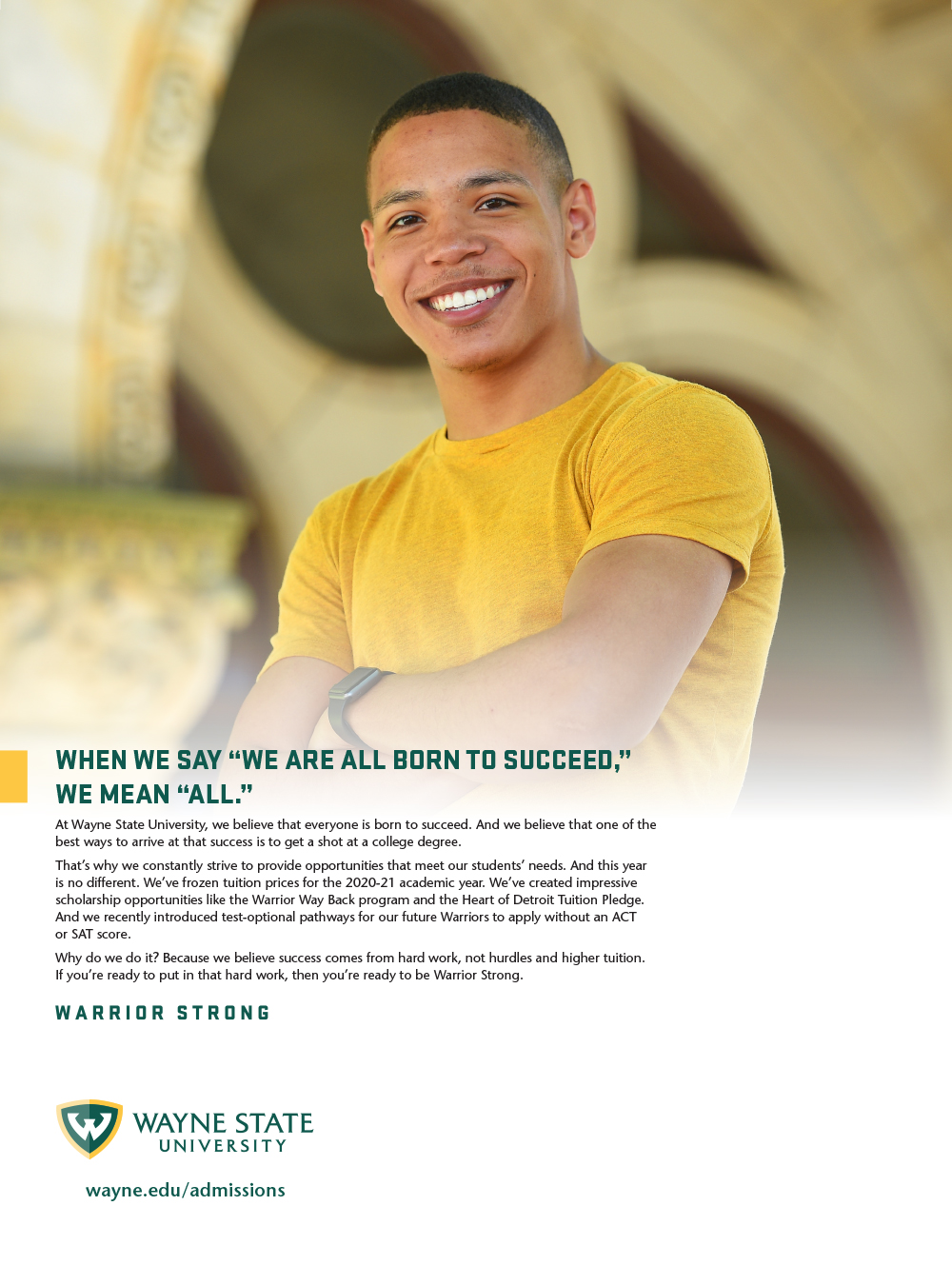
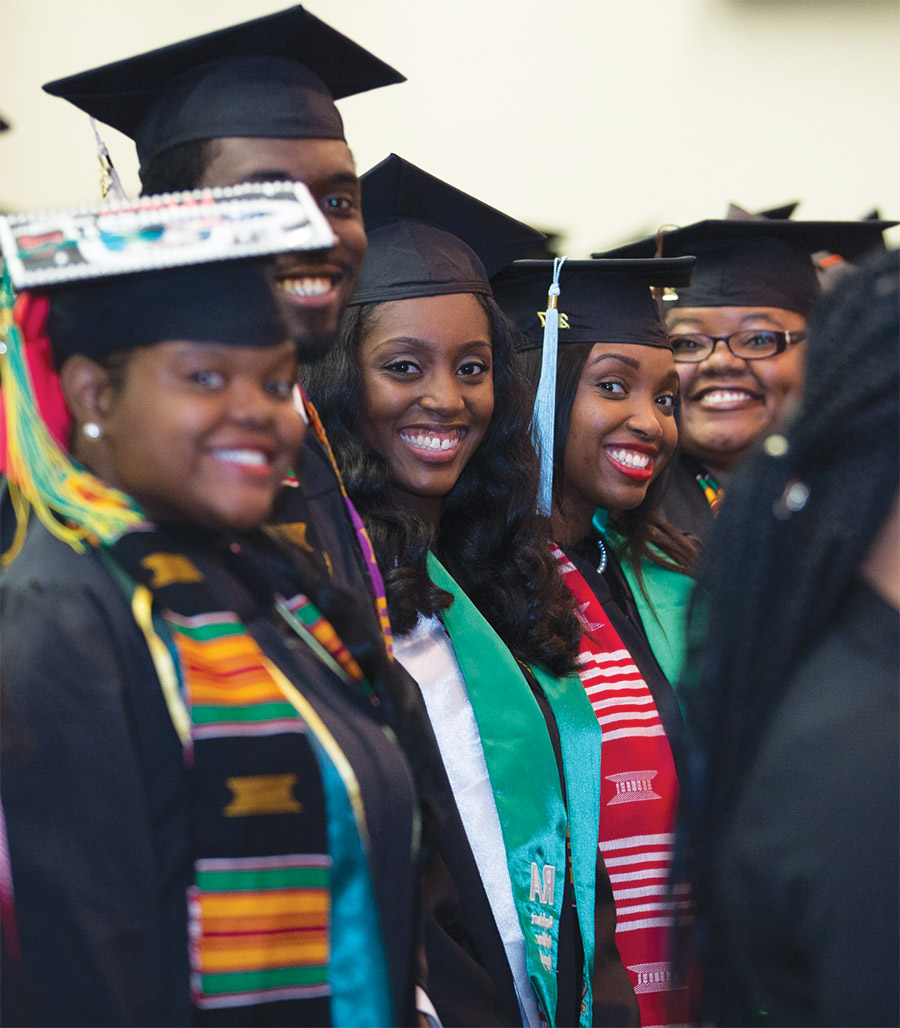
Darrell Dawsey, editor-in-chief
Thomas Reynolds
Andrea Westfall
Shawn Wright
DESIGN
Juan Sifuentes
PHOTOGRAPHY
Paul Hitzelberger
Got an idea for Warriors magazine?
Contact us at engaged@wayne.edu.
Bryan C. Barnhill, II
Michael Busuito
Mark Gaffney
Anil Kumar
Sandra Hughes O’Brien
Shirley Stancato
Dana Thompson
M. Roy Wilson, ex officio

For most of us, 2020 has been a year unlike any other.
A deadly pandemic stalks our nation. Social unrest continues to convulse our neighborhoods. And the cries for racial justice in metro Detroit and around the country have reached a pitch unheard for decades.
Even so, Warriors persevere. As our hometown continues its fight against COVID-19, we at Wayne State have done our best to not only safeguard our students and our campus from infection, but also to provide critical support for others fighting the virus across our city and state.
With the fall semester underway, we are fully re-engaged in the business of teaching, researching and learning, although we are doing a number of things differently for now. Most of our classes are online. Those who come to campus are required to follow a series of health protocols. And for now, many of the events that have become rituals on college campuses — from tailgates to homecomings to football games — have either been put on hold or have gone virtual.
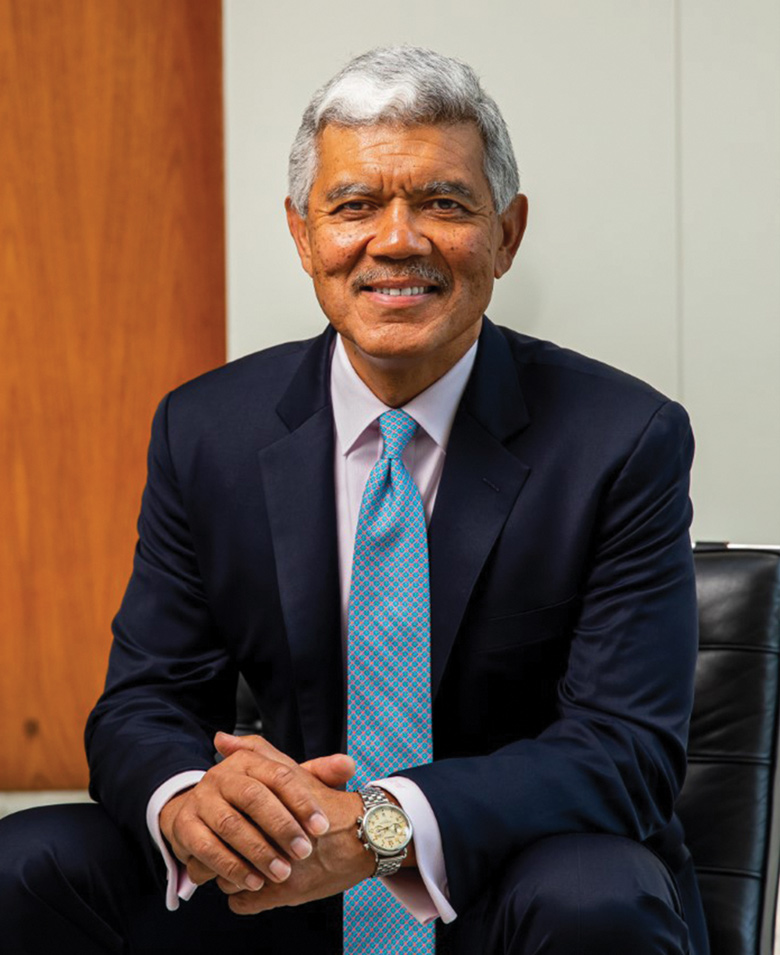
fficials at Wayne State University announced that as of Aug. 19, fall 2020 undergraduate enrollment is up 2.3% compared to fall 2019. Despite uncertainty caused by the COVID-19 pandemic, it is trending toward being the largest freshman class in the university’s 152-year history. In addition, Black undergraduate enrollment for first-time college students at Wayne State is up an astonishing 58.7%. Overall Black enrollment is up 3.6% over last year.
“These numbers speak to the commitment we have made to making a Wayne State education accessible and affordable to all students, regardless of racial or socio-economic background,” said Wayne State President M. Roy Wilson. “We’re focused on increasing enrollment and the diversity of our student body through targeted strategic efforts to recruit students of all backgrounds. And it’s working.”
Wayne State also exceeded its strategic plan goal of a six-year graduation rate of 50% one year early, and is anticipating it will hit 52% by September. The six-year graduation rate for Black students has tripled to 25%, from 8% in 2011. Wayne State’s progress in boosting degree attainment and improving graduation rates has become a national model.
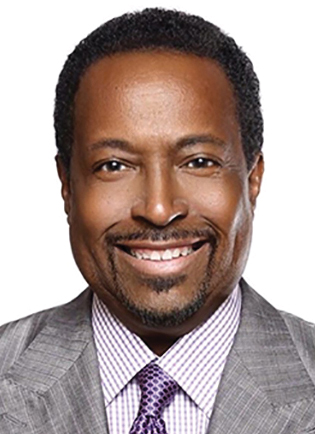
The Detroit Equity Report seeks to gather data from companies in the metro Detroit region about the levels of diversity throughout their organizations, including the C-suites and governance levels. This data will be used by the organizations to help promote the empowerment and advancement of African Americans and other people of color in corporate America. The collaborative effort is also backed by Detroit Mayor Mike Duggan and others.
“I am thrilled to have Wayne State University bring its analytical expertise to this endeavor,” said Vann, senior pastor of Second Ebenezer Church in Detroit. “Wayne State President M. Roy Wilson, a man of integrity and passionate commitment to social justice, immediately assembled a high-level team of academic experts to join us in this mission. We are particularly gratified that Peter Hammer, director of the Damon J. Keith Center for Civil Rights, will lead the Wayne State team. I have no doubt Damon Keith would be in full support of these efforts.”
n a life’s journey that has been strewn with more than its share of potholes, bumps and barriers, Jorge Chinea, professor of history and director of Wayne State University’s Center for Latino/a and Latin American Studies (CLLAS), has less dodged the obstacles in his path than powered through them.
Rising from an adolescence mired in poverty in semi-rural Puerto Rico to a youth in New York marked first by gang life and, later, by passionate political activism, Chinea has undergone remarkable change with each step of a journey that has earned him a place as a respected pillar for social justice in Detroit and as one of the most prominent voices for the city’s Latino community.
“Joining gangs was the last thing I wanted to do, but I had four younger siblings and a divorced mother whom I needed to protect, so I entered that world reluctantly, hoping to deter ill-intentioned people from messing with them,” Chinea recalled. “In the course of gang-banging, I learned that these groups were not all the same, and eventually helped organize one, the Renigades of Harlem, that banned heavy drug use and promoted the rehabilitation of abandoned buildings. That move changed my life for the better.”
The Center for Latino/a and Latin American Studies recently announced that it is launching a fundraising effort to create an endowed scholarship named in honor of Jorge Chinea.
The scholarship was developed to recognize Chinea’s yearslong dedication to community service and creating opportunities for underrepresented students at Wayne State University. When fully funded, the scholarship will be awarded to a student who is earning a minor in Latino/a and Latin American studies at WSU and maintains at least a 2.5 GPA, with preference given to those with a demonstrated commitment to community service and engagement.
This effort is being led by Assistant Director of Student Services and Program Development Melissa Miranda Morse and colleagues from Development and Alumni Affairs.
Contributions are currently being accepted. Visit warriorfunder.wayne.edu/chinea to learn more and to donate.
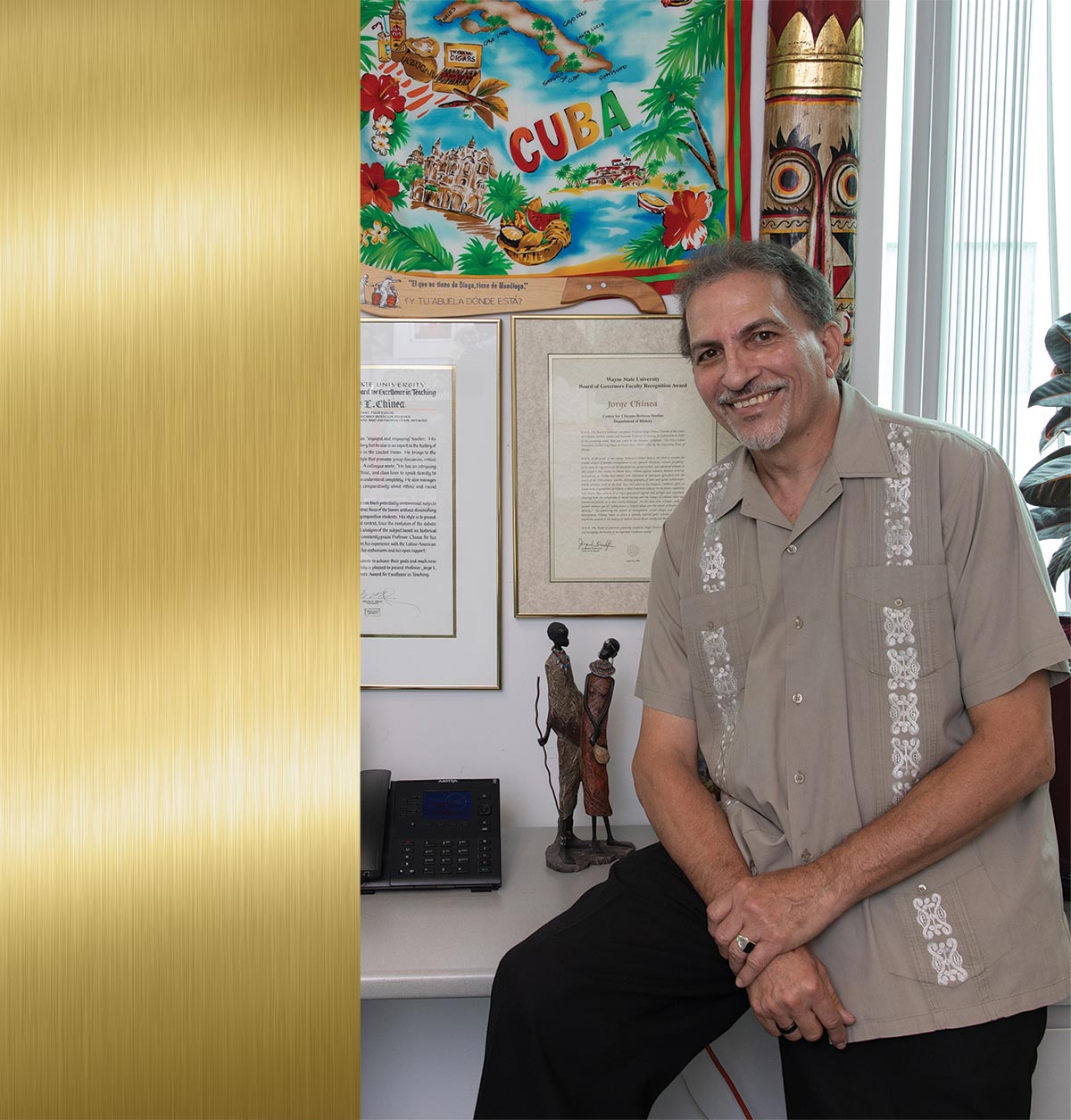
The Center for Latino/a and Latin American Studies recently announced that it is launching a fundraising effort to create an endowed scholarship named in honor of Jorge Chinea.
The scholarship was developed to recognize Chinea’s yearslong dedication to community service and creating opportunities for underrepresented students at Wayne State University. When fully funded, the scholarship will be awarded to a student who is earning a minor in Latino/a and Latin American studies at WSU and maintains at least a 2.5 GPA, with preference given to those with a demonstrated commitment to community service and engagement.
This effort is being led by Assistant Director of Student Services and Program Development Melissa Miranda Morse and colleagues from Development and Alumni Affairs.
Contributions are currently being accepted. Visit warriorfunder.wayne.edu/chinea to learn more and to donate.
“For as long as I can remember, medicine has been an interest of mine, but it was a series of academic opportunities and medically related personal experiences that solidified my dream of practicing medicine,” said Irons. “As soon as I began applying to universities, I started searching for programs that would provide a fast track and/or guarantee to medical school.”
It wasn’t her own searches, but rather a tip from a relative that led Irons into the program that she’d dreamed of. “Rather than discovering Wayne State and the Med-Direct program on my own, it was an aunt who informed me of the school and program at the recommendation of a friend and Wayne State University School of Medicine alumna.
“I haven’t cried…yet,” says Deaja Todd, a wan smile struggling across her face.
Not that anyone would blame the 22 year old — who plans to complete her bachelor’s program in public health at Wayne State University this winter — if she did break down in sobs. A nursing assistant who works three days a week on one of several floors set aside by a local hospital system for Detroit-area COVID-19 patients, Todd has been as close to the front lines of the pandemic as any aspiring health professional could imagine.
She’s witnessed the fear on the faces of her colleagues and mentors, hardened medical professionals with decades of experience, as they fight to save dying patients while also trying to avoid contracting the infection themselves. She’s felt the sadness and anger they’ve expressed at their inability to stop a disease that they still know too little about. And she’s seen death — way too much of it.
“We’ve had people pass away, and it’s very sad,” says Todd. “Sometimes, it happens so suddenly. We’ve had people come in who look fine. One minute, they’re talking and texting on their phones. And then, all of sudden, they’re fighting for their lives.”
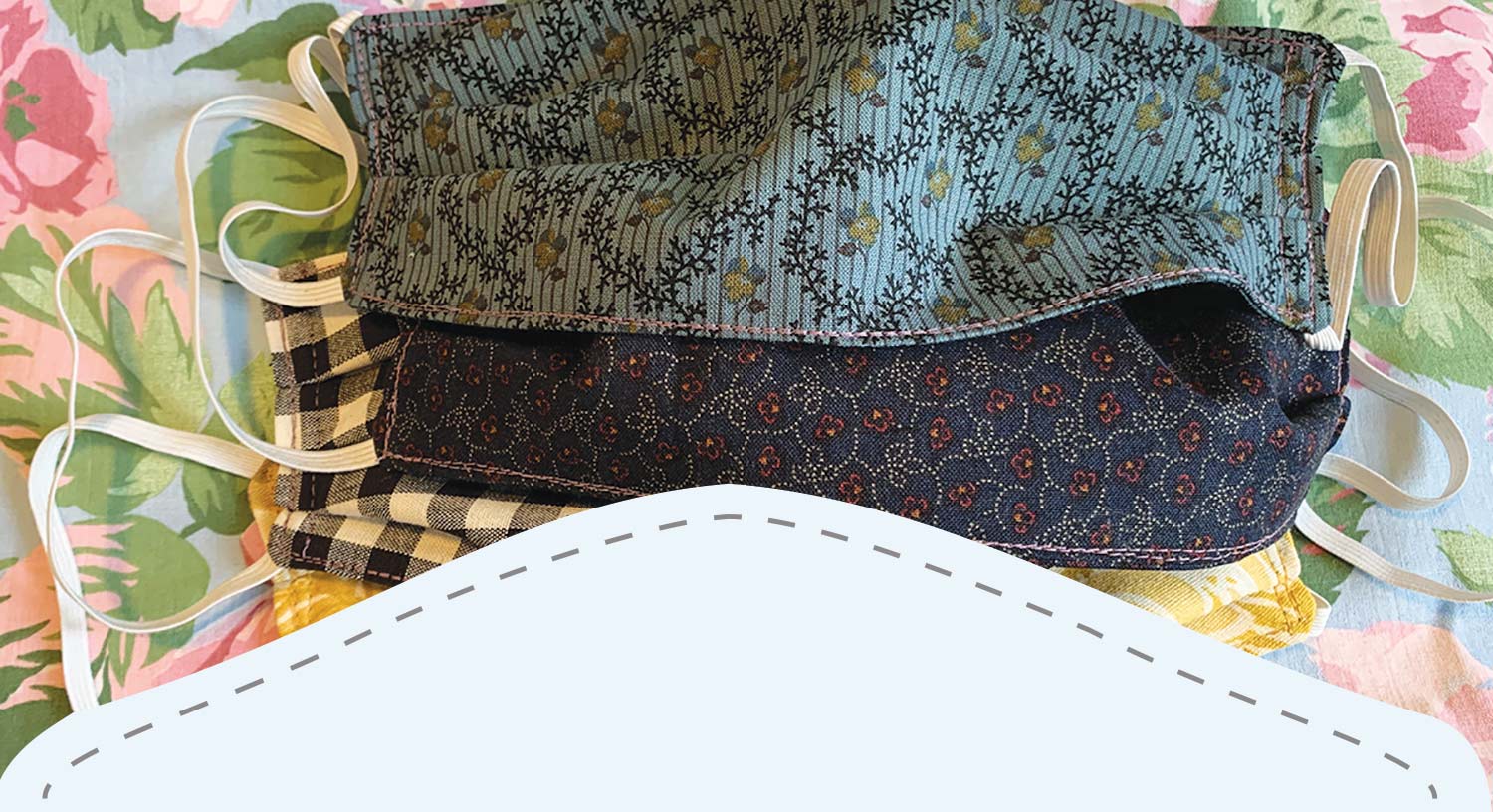
ven before the COVID-19 outbreak paralyzed much of the nation, fashion designer Kelsey Tucker understood well the toll that work on the front lines of a crisis can take on those engaged in it.
Having an older sister who works for the Federal Emergency Management Agency, Tucker often heard harrowing stories of tragedy and trauma and recognized intimately the strain facing those tasked with saving lives amid a crisis.
“FEMA works on handling natural disasters and responding, so I hear my sister’s stories all the time,” explained Tucker, who, with another sister, co-founded their own local fashion line, Deviate. “She’s been a big inspiration to me — so when the virus outbreak began, I heard that there was a shortage of equipment for first responders and health care workers. I felt the choice was an easy one to make to do my part and be part of positive change.”
ven before the COVID-19 outbreak paralyzed much of the nation, fashion designer Kelsey Tucker understood well the toll that work on the front lines of a crisis can take on those engaged in it.
Having an older sister who works for the Federal Emergency Management Agency, Tucker often heard harrowing stories of tragedy and trauma and recognized intimately the strain facing those tasked with saving lives amid a crisis.
“FEMA works on handling natural disasters and responding, so I hear my sister’s stories all the time,” explained Tucker, who, with another sister, co-founded their own local fashion line, Deviate. “She’s been a big inspiration to me — so when the virus outbreak began, I heard that there was a shortage of equipment for first responders and health care workers. I felt the choice was an easy one to make to do my part and be part of positive change.”
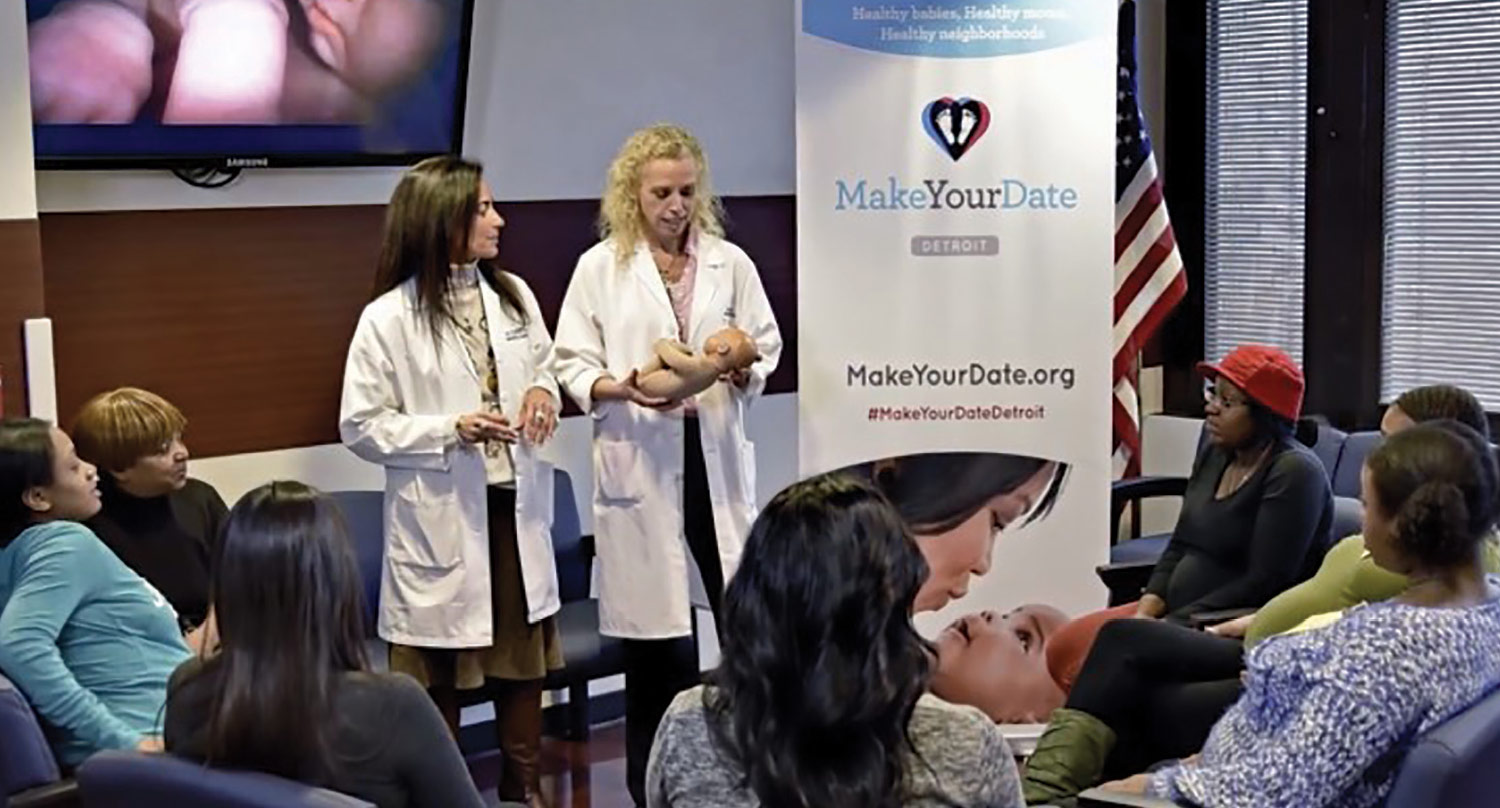

Since the beginning of the pandemic, many pregnant women have found themselves in an extraordinary situation by missing regular obstetrical visits for fear of becoming exposed to the virus, having increased concern over not having a birthing partner, dreading risks to their baby during or after giving birth, and staying isolated at home without food or supplies. Unlike some elective medical procedures that have been delayed, pregnancy and delivery can’t wait; additionally, hospital systems may not have the capacity to work one-on-one with these vulnerable patients.
Wayne State University’s Office of Women’s Health and Make Your Date Detroit, a free program for expectant mothers, is available to help.
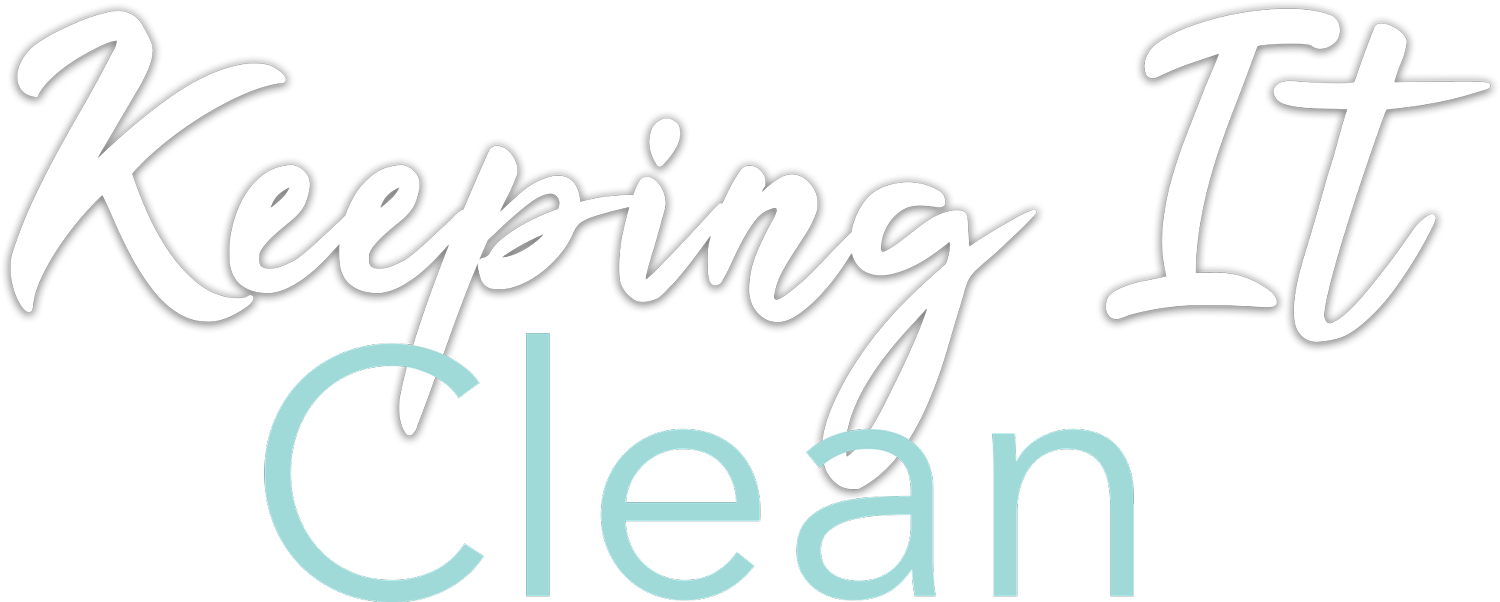
The stations were all installed this spring.
“While many of us may take this simple act of hygiene for granted, a number of encampment residents have expressed gratitude and excitement to have the ability to wash their hands in their camps while businesses and public facilities are closed during the pandemic,” said Class of 2021 student Amanda Manly, president of Street Medicine Detroit. “SMD has been concerned for our friends on the street as their situations make them especially vulnerable to infections. Our goal is to maximize their health and safety. It is our hope that these stations will aid in doing so.”

The June 5 event, coordinated locally by Ijeoma Nnodim Opara, M.D., assistant professor of internal medicine-pediatrics; Kenisha Evans, M.D., an internal medicine resident; and Claudia Jarrin Tejada, M.D., under the leadership of a coalition of African American medical residents training in Detroit academic health systems, was part of a nationwide effort by White Coats for Black Lives, a medical student-run organization.
White Coats for Black Lives was born out of the National White Coat Die-In demonstrations that took place on medical campuses across the nation on Dec. 10, 2014, in reaction to the deaths of Michael Brown and Eric Garner at the hands of police in Ferguson, Missouri, and New York, respectively. White Coats for Black Lives seeks to safeguard the lives and well-being of patients through the elimination of racism, and to dismantle racism in medicine and promote the health, well-being and self-determination of people of color.
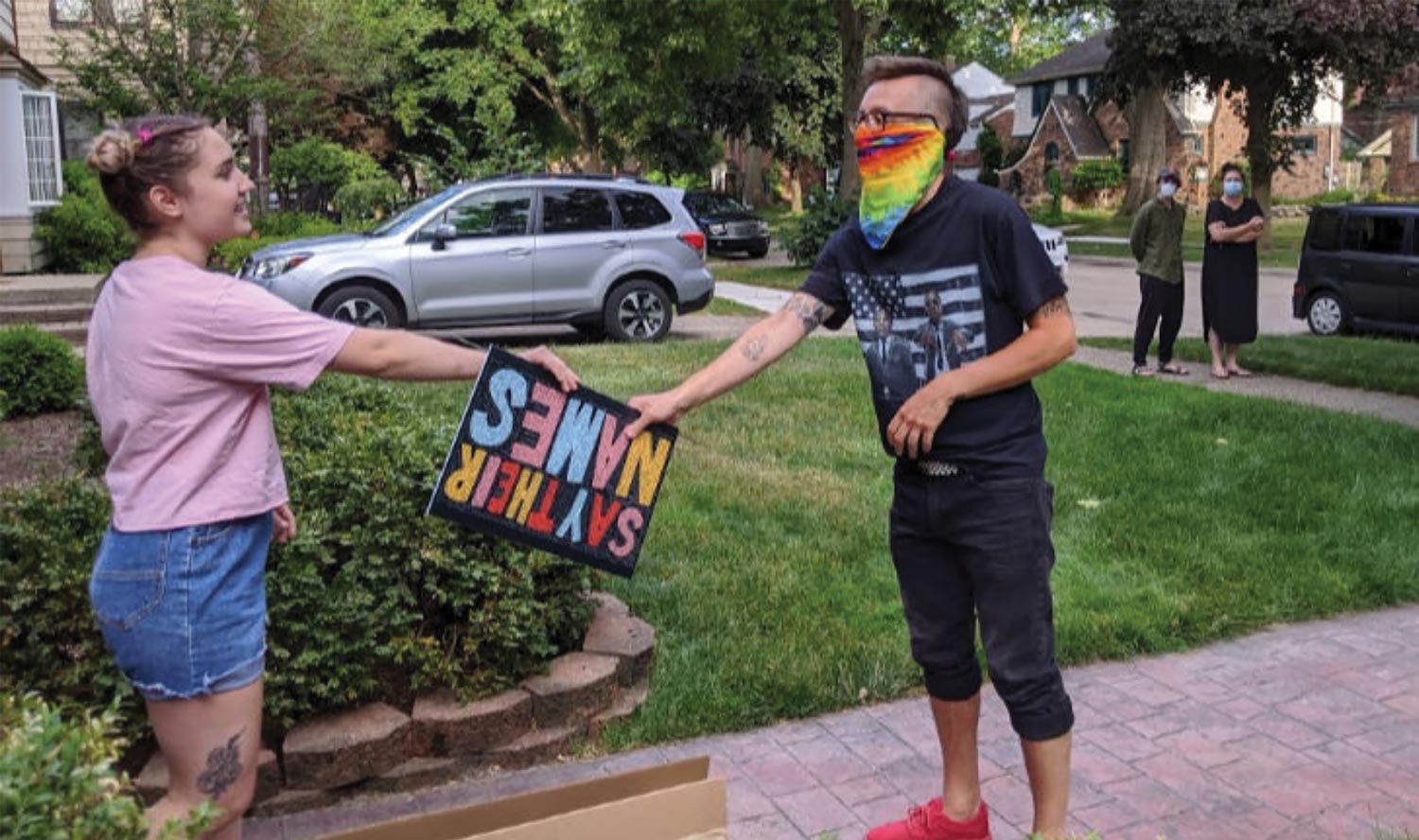
Christina Krysiak scrolled down her internet browser and read name after name after name of Black Americans who have been victims of police brutality. The 19-year-old Wayne State University art student was appalled. She wanted to do something to help, especially as her social media feeds filled with others getting involved with the Black Lives Matter movement.
Krysiak decided that her art would be the best platform to help make a difference. What started as designing stickers with the phrase “Say Their Names,” which she sold for $5 through a local Facebook group to raise money for Black Lives Matter, has since turned into hundreds of yard signs across her hometown of Pleasant Ridge, the surrounding area and some communities throughout the United States.

